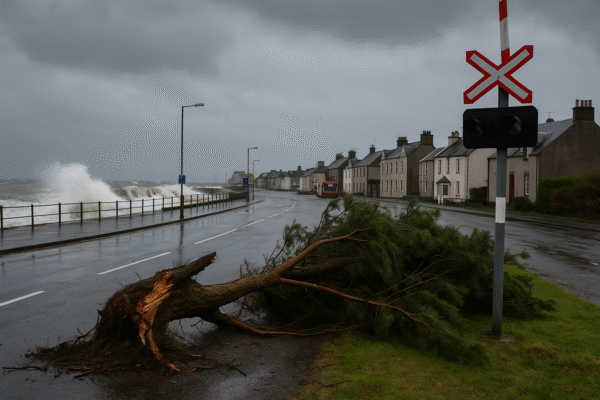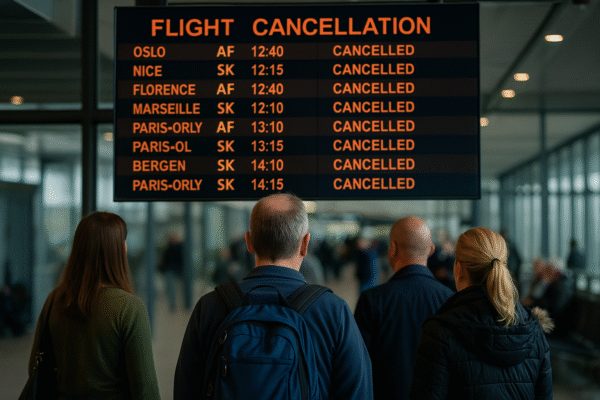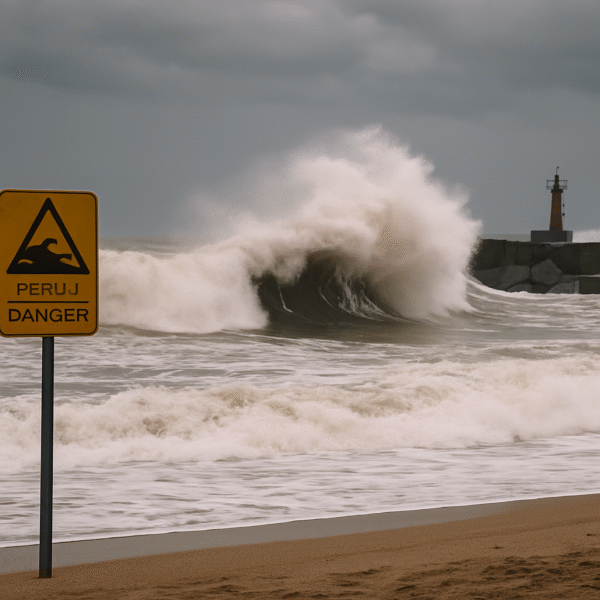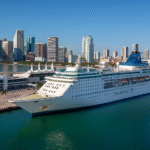Spain has issued a new travel advisory for tourists as extreme weather conditions sweep across parts of the country. The Spanish State Meteorological Agency (AEMET) has activated amber and yellow warnings in several regions, alerting residents and travelers to the risks of gale-force winds and powerful coastal waves.
According to official forecasts, winds could reach 80 km/h in some parts of Catalonia, while the Balearic Islands face gusts of up to 60 km/h and sea waves between three to four meters high. These conditions significantly increase safety risks for outdoor activities, water sports, and coastal tourism, prompting authorities to urge caution.
Amber Warnings for Catalonia
The most severe alerts are concentrated in northern Catalonia’s Empordà region, where amber warnings have been issued. Winds of up to 80 km/h are expected to disrupt daily activities, particularly in open coastal areas where waves could climb as high as four meters.
Such conditions pose dangers for tourists planning to visit beaches, fishing harbors, or hiking trails in exposed coastal zones. Authorities are advising travelers to avoid unnecessary exposure to the sea and prepare for possible disruptions to ferry schedules or seaside excursions.
Yellow Alerts for the Balearic Islands
In the Balearic Islands, including Mallorca and Menorca, AEMET has issued yellow weather warnings for both strong winds and rough seas. Here, gusts may reach 50–60 km/h, while waves are forecast to hit three meters along parts of the coastline.
These conditions are especially concerning for holidaymakers engaging in boating, kayaking, or other water sports. Travelers are advised to remain cautious near beaches and to check with tour operators regarding any adjustments to planned coastal activities.
Extended Risks and Ongoing Monitoring
The adverse weather is expected to continue into the coming days, with forecasts indicating lingering storm activity through October 6. AEMET has confirmed that it will continue to update its alerts in real time, depending on how conditions develop.
Tourists are encouraged to remain attentive to local news broadcasts and official channels, as further updates may include extended warnings or upgraded alerts. The meteorological agency emphasized that the primary concern is ensuring public safety, particularly for visitors who may not be familiar with the risks of Spain’s sudden coastal storms.
Safety Risks Along the Coast
The most significant danger is posed by the combination of strong winds and turbulent seas. Waves measuring three to four meters can easily destabilize boats, pose hazards to swimmers, and erode beaches. Fishermen and recreational sailors are being strongly advised to stay ashore until conditions improve.
For those staying in seaside resorts, hoteliers have been urged to secure outdoor areas, including furniture and beachside amenities. Travelers are advised to avoid venturing near rocky shores or piers, where sudden gusts and high waves could be life-threatening.
Recommendations for Tourists
Authorities have outlined several steps for tourists in affected areas:
- Stay updated: Follow weather reports and AEMET updates.
- Avoid beaches and coastal zones: High waves pose extreme risks, even for casual walks along the shore.
- Prepare for travel disruptions: Ferries and flights, especially between mainland Spain and the Balearic Islands, could face delays or cancellations.
- Secure outdoor belongings: Guests in coastal hotels or private rentals should ensure balconies and outdoor areas are clear.
- Follow official advice: Local police and emergency services may restrict access to dangerous areas for safety.
Impact on Tourism
This weather advisory arrives during a period of high tourist activity in Spain, particularly in destinations like Mallorca, Menorca, and Costa Brava. The warnings could impact local tourism industries, with possible cancellations of water-based excursions and adjustments in resort operations.
Hotels may need to temporarily close outdoor pools, terraces, or beachfront activities for guest safety. Similarly, adventure and eco-tourism providers are expected to reschedule or suspend tours involving sea crossings, cliffside trails, or exposed coastal paths.
Air and sea travel could also be affected, with ferry operators likely to review schedules and airlines warning of possible turbulence-related delays. Tourists are advised to remain flexible with their plans and ensure they have contact details for airlines, ferry companies, and accommodation providers.
Practical Tips for Travelers
To minimize the impact of the weather warnings, tourists are encouraged to take proactive measures:
- Check travel insurance policies to confirm coverage for cancellations or delays caused by weather disruptions.
- Build flexibility into itineraries, allowing for rescheduled excursions or alternate indoor activities.
- Stay indoors during peak storm periods, avoiding unnecessary exposure to strong winds or rough seas.
- Keep emergency numbers handy, including local police, medical services, and tourist hotlines.
AEMET’s Continued Oversight
The Spanish Meteorological Agency will remain on alert throughout the coming days, with meteorologists carefully tracking wind speeds and sea conditions. Travelers are encouraged to monitor weather updates frequently, particularly if staying near affected coastal areas.
Local tourism offices across Catalonia and the Balearic Islands are also working with authorities to disseminate information to international visitors in multiple languages, ensuring safety guidance reaches as many people as possible.
Conclusion
Spain’s amber and yellow travel advisories highlight the unpredictable nature of autumn weather in the Mediterranean. For tourists in Catalonia and the Balearic Islands, safety must remain the top priority, especially as gale-force winds and towering waves present real risks along the coast.
By staying informed, avoiding hazardous zones, and remaining flexible with plans, travelers can still enjoy their stay while minimizing the impact of severe weather. Spain remains a top destination for global visitors, but during this period, extra caution is essential.
For more travel news like this, keep reading Global Travel Wire















